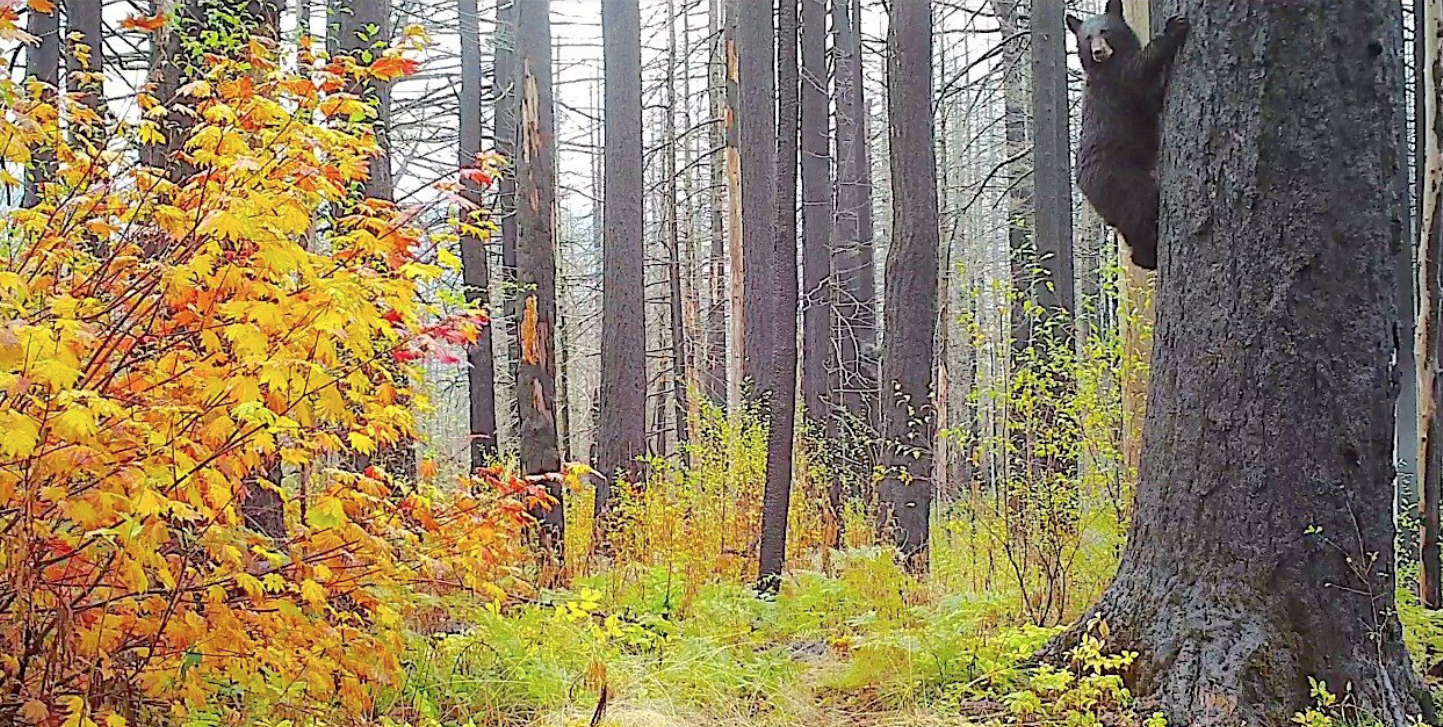Redefining the wildfire problem and scaling solutions to meet the challenge
A young bear in a burned forest within the 2017 Eagle Creek fire perimeter, Columbia River Gorge, Oregon
Green Oregon collaborated with the Bulletin on this article:
Wildfires started by people and lightning have been part of the North American landscape since the retreat of ice sheets in the Pleistocene. As settlers colonized the American West, they viewed fire as a destructive force to be controlled and eliminated. In 1850 the US government passed legislation outlawing indigenous fire practices that had been used for thousands of years. As fire suppression ramped up, a cool, wet period from the 1940s to the 1980s gave firefighters a helping hand. These events underpinned the dominant cultural belief that the solution to wildfire is controlling it.
Today wildfire is still largely approached as a problem that can be controlled through vegetation treatments and firefighting. Yet attempts to alter vegetation before fire comes, or to suppress fire when it ignites, are not keeping communities from burning in fast-moving fires. Recent fires in Hawaii, Colorado, Oregon, and California have demonstrated the devastating effects of unpredictable, wind-driven fires.
For almost 80 years, Smokey Bear has been the face of public awareness campaigns asking people to be careful with fire, yet most fires are still caused by people—often through escaped campfires, careless use of fireworks, or energized power lines failing during wind events. The hallmarks of the most destructive fires are dry winds plus an ignition. In those fires, embers travel great distances, enter homes, and burn communities to the ground. Burning homes become the fuel to ignite other homes, unleashing mass urban conflagrations.
